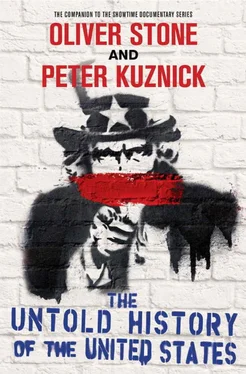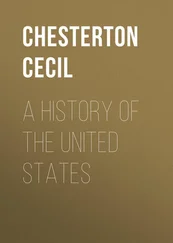They have also denied the means by which it was accomplished. But reminders have often come from the most unexpected of places. It was Samuel Huntington, progenitor of the reductionist and wrongheaded “clash of civilizations” thesis, who astutely pointed out: “The West won the world not by the superiority of its ideas or values or religion (to which few members of other religions were converted) but rather by its superiority in applying organized violence. Westerners often forget this fact; non-Westerners never do.” 12
Wall Street Journal editor and Council on Foreign Relations senior fellow Max Boot understood better than most that U.S. imperial designs were not of recent vintage. He chided Donald Rumsfeld for his sharp response to an Al-Jazeera reporter who asked him if the United States was “empire building.” Boot quipped that Rumsfeld “reacted as if he’d been asked whether he wears women’s underwear.” “We don’t seek empires,” Rumsfeld snapped. “We’re not imperialistic. We never have been.” Boot disagreed, citing the expansion across the continent that began with the Louisiana Purchase; moving abroad with the late-nineteenth-century acquisitions of Puerto Rico, the Philippines, Hawaii, and Alaska; followed by the post–World War II “bout of imperialism” in Germany and Japan; and capped off with the “recent ‘nation-building’ experiments in Somalia, Haiti, Bosnia, Kosovo and Afghanistan[, which] are imperialism under another name.” But, unlike critics on the left, Boot applauded U.S. expansionary policies. “U.S. imperialism,” he argued, “has been the greatest force for good in the world during the past century.” 13
Harvard historian Niall Ferguson, a sometime apologist for the British Empire, understood that Americans’ pretension to superiority was, to say the least, self-serving. Ferguson wryly observed, “To those who would still insist on American ‘exceptionalism,’ the historian of empires can only retort: as exceptional as all the other sixty-nine empires.” 14
Although apologists’ claims to moral superiority were certainly overblown, their claims to military superiority seem defensible. Few have more perspective on this topic than Paul Kennedy, whose award-winning 1987 book The Rise and Fall of the Great Powers noted that the U.S. Empire was in decline, following the habitual pattern of imperial overreach. But, like others, he was dazzled and, one might say, blinded by the ease with which the United States obliterated Afghanistan following the terrorist attacks of September 11, 2001. “Nothing has ever existed like this disparity of power; nothing,” he wrote, reversing his earlier judgment. “I have returned to all of the comparative defence spending and military personnel statistics over the past 500 years… and no other nation comes close. The Pax Britannica was run on the cheap, Britain’s army was much smaller than European armies, and even the Royal Navy was equal only to the next two navies—right now all the other navies in the world combined could not dent American maritime supremacy.” Kennedy was awestruck by the fierce power of the country’s twelve carrier groups. No other empire could compare: “Charlemagne’s empire was merely Western European in its reach. The Roman empire stretched farther afield, but there was another great empire in Persia, and a larger one in China. There is, therefore, no comparison,” he concluded. 15
But even these claims deserve closer scrutiny. The United States certainly possesses the greatest firepower, the best trained and equipped and most capable troops, and the most technologically sophisticated weaponry of any military power in history. But this has not easily translated into victory on the battlefield when the enemy employs asymmetrical tactics and the objective is winning hearts and minds.
Confusion over U.S. imperial status has resulted from the fact that the United States exercises the power and functions of an empire but does not take on the traditional trappings of one. Clearly, it has not followed the path of European colonial empires, although it has occasionally dabbled in colonial ventures. These have, for the most part, been adjuncts to overseas economic penetration constituting what some have called an “open-door” empire, one more concerned with control of markets and other forms of economic domination than with controlling subject populations and actual territory. The United States has, however, repeatedly resorted to military force and even prolonged occupations to deal with threats to those economic interests and private investments. More recently, U.S. control has been exercised through what Chalmers Johnson aptly described as an “empire of bases” that are a substitute for the colonies of days gone by. By 2002, Pentagon figures indicated that the United States had some form of military presence in 132 of the UN’s then 190 member nations. 16Add to that the multibillion-dollar carrier battle groups, and the U.S. military presence is truly global. Plus, the United States retains the world’s most potent nuclear arsenal, capable, despite reductions in recent years, of ending life on the planet several times over.
The latest frontier has been military domination of space as part of what the United States calls “full-spectrum dominance.” It was outlined in the U.S. Space Command’s 1997 publication “Vision for 2010” and fleshed out further in the Pentagon’s “Joint Vision 2020.” 17It portends unchallenged U.S. military domination on land and sea and in space.
The American Empire has evolved over the course of more than a century. After fulfilling what journalist John L. O’Sullivan termed its “Manifest Destiny” by spreading across North America, the United States looked overseas. William Henry Seward, Secretary of State to both Abraham Lincoln and Andrew Johnson, articulated a grandiose vision that incorporated Alaska, Hawaii, Canada, parts of the Caribbean and Colombia, and Midway Island.
While Seward dreamed, the Europeans acted, gobbling up everything they could get their hands on in the late nineteenth century. Britain led the way, adding 4.75 million square miles of territory—an area significantly larger than the United States—in the last thirty years of the century. 18France added 3.5 million. 19Germany, off to a late start, added 1 million. Only Spain’s colonization was in decline. By 1878, the European powers and their former colonies controlled 67 percent of the earth’s surface and, by 1914, an astounding 84 percent. 20By the 1890s, Europeans had divided up 90 percent of Africa, the lion’s share claimed by Belgium, Britain, France, and Germany. Massachusetts Senator Henry Cabot Lodge, the leading proponent of an American Empire, observed, “The great nations are rapidly absorbing for their future expansion and their present defense all the waste places of the earth” and urged the United States to move quickly to make up for lost time. 21


During the late nineteenth century, European countries vastly expanded their empires. As illustrated in these maps, by 1878, the European powers and their former colonies controlled 67 percent of the earth’s surface and, by 1914, an astounding 84 percent.
But such an empire was anathema to most Americans, who were struggling to defend a nineteenth-century vision of a producer’s republic from a ravenous industrial capitalist order. The enormous gulf between opulent capitalists and struggling masses shook the foundations of Americans’ democratic and egalitarian ideals. Most farmers and workers deplored the idea that a handful of bankers and industrialists, along with their stable of rubber-stamp legislators and judges, should run the country. Poet Walt Whitman captured that feeling when he described the excesses of capitalism as “a sort of anti-democratic disease and monstrosity.” 22
Читать дальше














